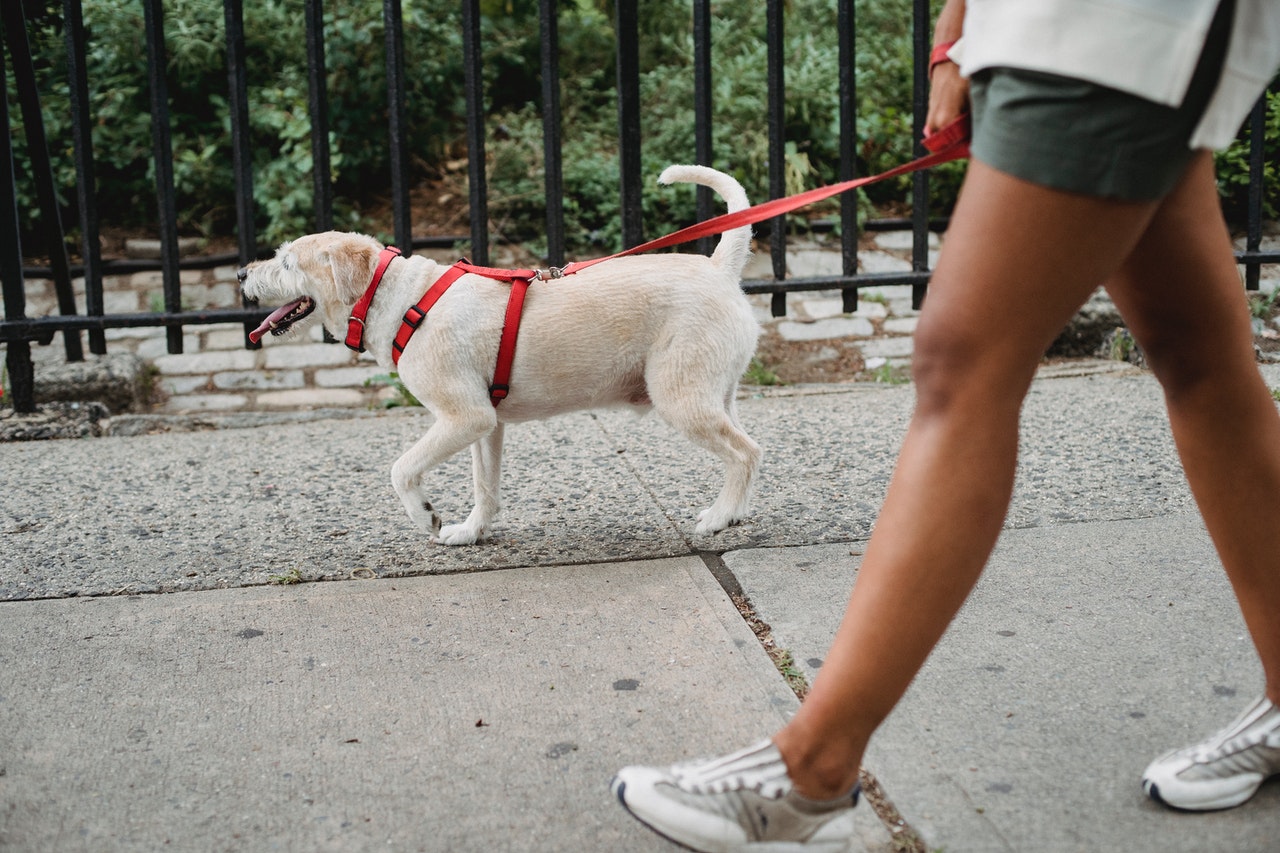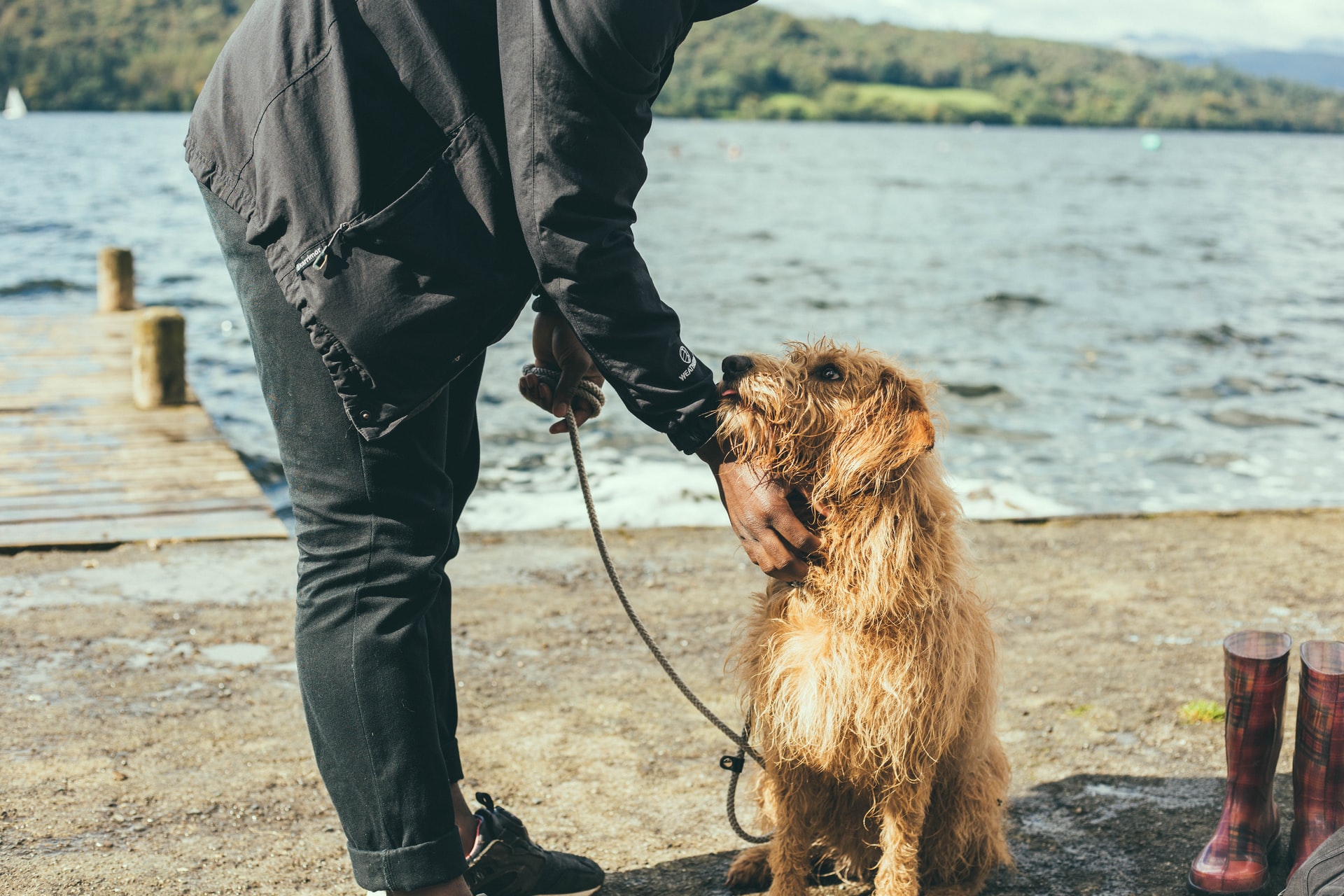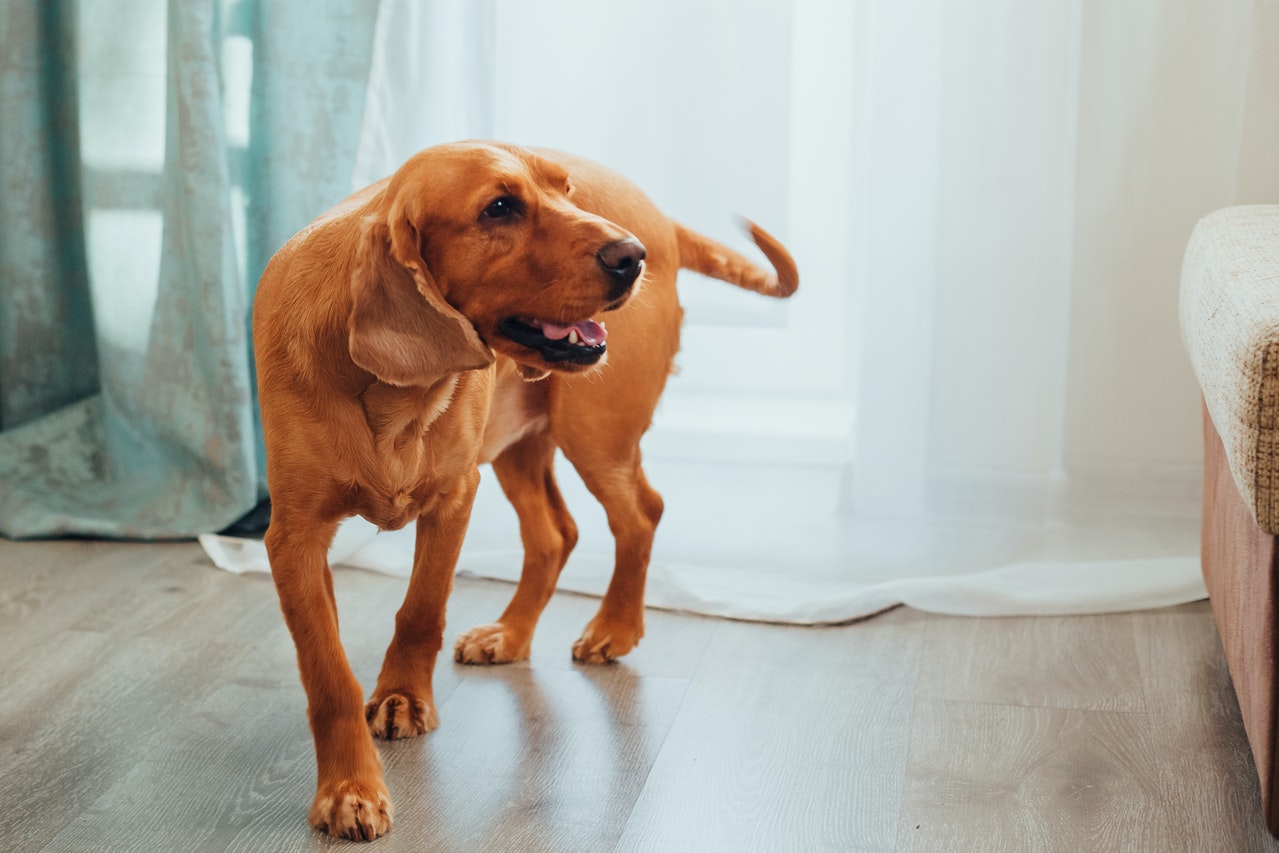When bringing home a puppy, it is vital to start with toilet training as soon as possible. Accidents are natural and can happen, so you will need to be patient and leave them some time to adjust. Some puppies will settle into a routine quite fast, while others may need extra time and support.
If house soiling continues, it might be a good idea to get in touch with your vet who can rule out any medical issues. Here are our tips to toilet train your dog:
While it’s going to be pretty obvious when your pooch has had an accident, you could also look for the tell-tale signs and redirect them earlier, before it takes place. If you notice your puppy doing any of the following, quickly get their attention and take them outdoors.
- Sniffing the ground
- Lowered frame posture
- Curving to the ground
- Going to the door
Some of those signs are probably more obvious than others, so don’t worry if you don’t get them every time. If they happen to soil in the house, stay calm.
We recommend either an enzymatic cleaner, following the usage instructions, or a dilution of 1:9 organic washing powder diluted in warm water. We wouldn’t advise household disinfectants as they contain ammonia, and the smell may also encourage your dog to go to the toilet in the same place once again.
Remember, do not punish your dog when they accidentally soil in the house, as this would only put pressure on them. In some cases, they might even become fearful of going to the toilet and become secretive about it.
Figure Out What Is Best For Them

Knowing the kind of surface your dog prefers will sincerely help with toilet training. You can ask the rescue centre or breeder where you got your puppy from. Some examples of various surfaces include:
- Cement Gravel
- Puppy pads
- Grass
Remember, the goal is to train our puppy to go to the toilet outside. Therefore, ensure to offer them frequent toilet breaks for the first few weeks as they adjust to the new routine.
Establish a Routine
Consistency is fundamental to establish good habits. A clean routine will help your dog develop confidence, get used to toilet breaks and reduce the chance of accidents in the house.
It is therefore important to offer your dog plenty of possibilities to spend time outdoors. Puppies will need significantly more toilet breaks during the day than grown-up dogs, especially at the beginning.
Stick To The Routine
Your dog will not associate being in the garden with going to the toilet straight away. If they seem distracted and want to play, simply sit down, make yourself completely uninteresting, and forget about them. Your dog will possibly get bored and start sniffing around.
Allow 10-15 minutes before taking them inside. Be sure to always keep an eye out for any signs so you can take them out again, if needed.
Praise Your Dog

Praising your pooch when they go to the toilet outside is good habit. It is important for you to communicate this, so do stroke your dog and let them know they did well!
It is not always advisable to use treats, as a few dogs may also take this as a signal that going to the bathroom everywhere will bring a tasty reward!
Toilet Training and Dog Sitting
We all know that puppies need extra care and attention, therefore we always recommend speaking with your chosen Gudog sitter in advance of the booking. It is important to make them aware of routine, habits and particular needs, and if your pooch is not fully toilet trained yet, do inform them about this.
What is Gudog?
Gudog is the easiest way to find & book the perfect dog Sitter. Thousands of loving Sitters are ready to care for your dog like family! All bookings come with Veterinary Care & Free Cancellation.
